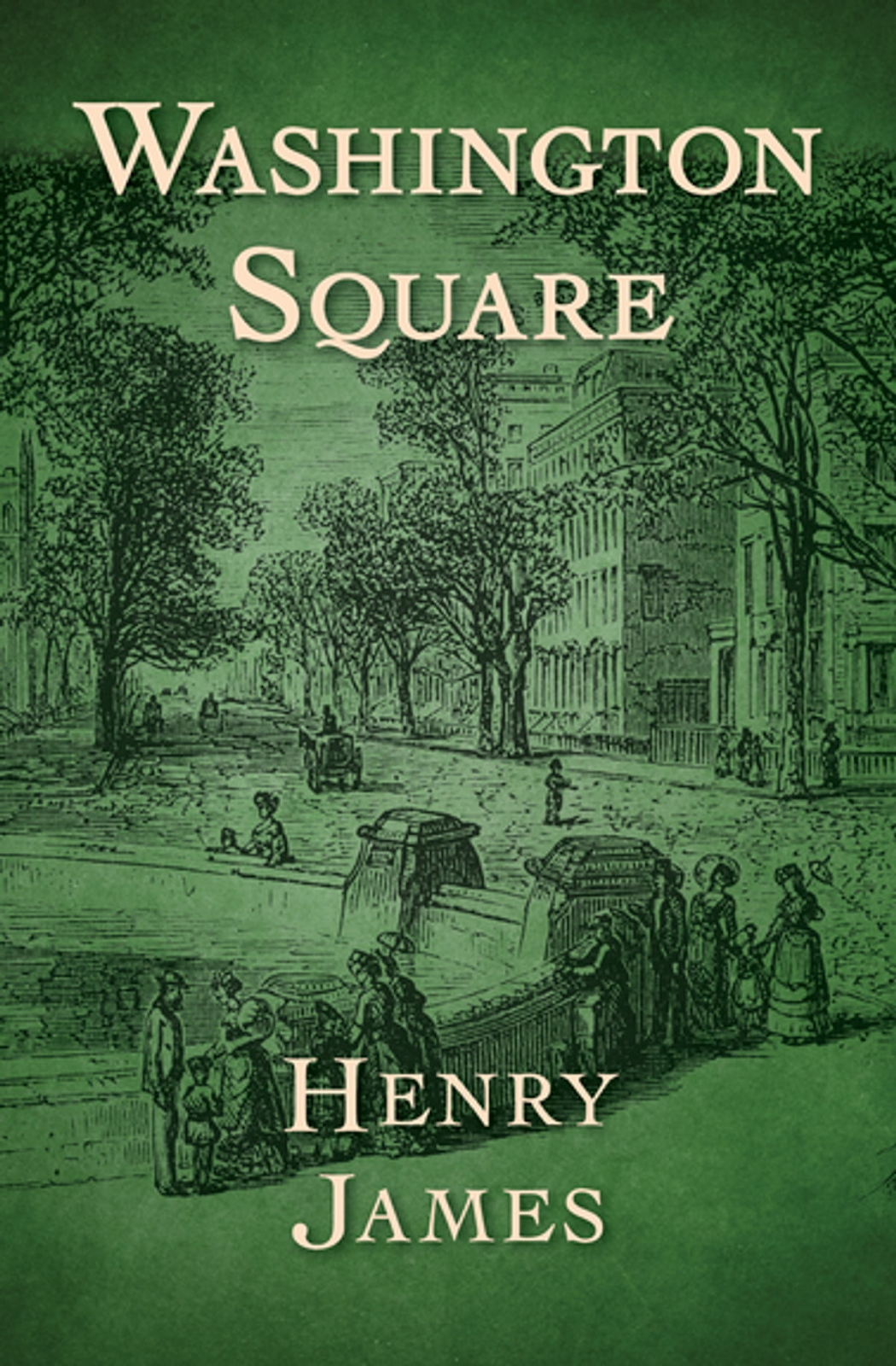Washington Square, first published in 1880, is Henry James’ least favorite of his own works.
At first glance, it’s hard to see why. It’s one of his most accessible books, it’s highly readable, and the story deals with such heady subjects as greed, overbearing parents, and the plight of women in the 19th century.
The story takes place in 1840s New York City, and focuses on Catherine Sloper, a gentle introvert living with her father, Dr. Austin Sloper, a noted physician, in Washington Square. But her relationship with her father is an uneasy one, as the Doctor does not hold his daughter in high regard, disappointed with what he considers her unremarkable nature.
Enter Morris Townsend, an attractive, charming, and worldly young man, who quickly sets his sights on Catherine. Dr. Sloper quickly opposes the relationship, suspecting Morris of only wanting his daughter for her sizable inheritance. And from that moment on, a battle of wills ensues, with Catherine at the center of it all. It’s a simple, melodramatic premise, with well-drawn characters, and plenty of psychological twists and turns, handled in that elegant and absorbing manner that only James could pull off.
But a closer look into the heart and style of the novel reveals why James hated the book so: It is the cast of characters, an unlikable bunch that all seem to revel in abusing Catherine’s heart and soul. They act and speak in an overwrought, occasionally grating manner, very uncharacteristic of James’ usual writing style. This is James at his least elegant; James not in complete control of his creations. This makes Washington Square one of the few stories that James ever wrote, in which melodrama almost threatens to overwhelm the narrative and drown out James’ usual quiet voice; his elegantly delivered insight into the psychology and inner lives of his characters.
No wonder James himself called the novel “poorish”, describing Catherine Sloper as “the only good thing in the story.” But, in a way, James was being too hard on the novel. Yes, Washington Square is one of his most flawed and cynical works, but it’s also a solid read, which, despite its rudimentary plot, manages to be a page-turner.
One wonders, though, what makes the book one of James’ most popular novels. Is it the readability factor? The uncharacteristic cynicism? The dark pall that hangs over Catherine, and, for that matter, the whole story? James has often been accused of being too restrained, too gentle with his pen, a charge that misses the entire reason why his work lives on. As it is that restraint, that seeming gentleness, which hides beneath it layers upon layers of drama, psychological insight, and storytelling momentum.
I suspect that the reason Washington Square is so popular with modern audiences is that it’s James at his loudest, at his least restrained. This is a book that easily grabs your attention, that demands less of you than, say, Roderick Hudson or The Aspern Papers. But as flawed as it is, it is still a wonderful, absorbing story that has more nuance and storytelling power within its pages, than most novels of its era, or any other era, for that matter.
Video version:
Text © Ahmed Khalifa. 2023.
Ahmed Khalifa is a filmmaker and novelist. He is the writer/director of several short films and a feature, which was released on Netflix, and the author of a number of novels and short stories, including the YA horror novel, Beware The Stranger, available on Amazon. He is also the host of The Dark Fantastic Podcast. Find him on Twitter @AFKhalifa and on Facebook @DFantasticPodcast
The Dark Fantastic is sponsored by VHS Books:




No comments:
Post a Comment